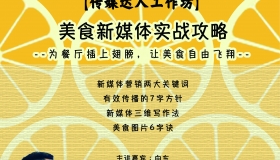Lecture Recommend | Professor from CMU gives a talk on Causal Modeling and Machine Learning
Prf
Seminar Information
Causal Modeling and Machine Learning
Topic: Causal Modeling and Machine Learning
Time & Date: 16:00p.m.-17:00p.m., March 29th, Friday
Venue: Room 207, Cheng Dao Building
Speaker: Prof. Kun Zhang, Carnegie Mellon University
Abstract
Can we find causal structure by statistical analysis of observational data? How can we find the causal direction between two variables? How can we make optimal predictions in the presence of distribution shift? We are often faced with such causal modeling or prediction problems. Recently, with the rapid accumulation of huge volumes of data, both causal discovery, i.e., learning causal information from purely observational data, and machine learning are seeing exciting opportunities as well as great challenges. This talk will be focused on recent advances in causal discovery and how causal information facilitates understanding and solving certain problems of learning from heterogeneous data. In particular, I will talk about basic approaches to causal discovery and address some practical issues, including data heterogeneity and the presence of measurement error. Finally, I will discuss why and how underlying causal knowledge helps in learning from heterogeneous data when the i.i.d. assumption is dropped, with transfer learning as a particular example.
About the Speaker

Kun Zhang is an assistant professor of the Philosophy Department and an affiliate faculty member in the Machine Learning Department of Carnegie Mellon University (CMU), as well as a senior research scientist at Max Planck Institute for Intelligent Systems, Germany. His research interests lie in machine learning and artificial intelligence, especially in causal discovery and causality-based learning. He has been actively developing methods for automated causal discovery from various kinds of data and investigating machine learning problems including transfer learning and deep learning from a causal perspective. He has made a series of contributions in solving long-standing problems in causality, including how to distinguish cause from effect from observational data, how to deal with measurement error in causal analysis, and how causality and data heterogeneity benefit from each other. He has served as area chairs or senior program committee members for a number of conferences in machine learning or artificial intelligence, including NIPS, UAI, ICML, AISTATS, AAAI, and IJCAI. He has organized various academic activities to foster interdisciplinary research in causality.




